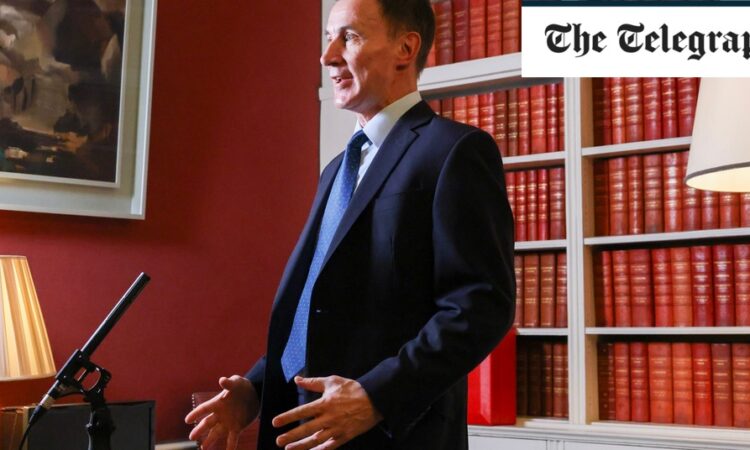
The housing market is bouncing back as a mortgage price war boosts sales, new data shows.
Newly agreed sales reached the highest level since March 2022 in December, according a closely watched measure produced by the Royal Institution of Chartered Surveyors (Rics).
Buyer inquiries also recovered for the fourth month in a row with demand now at its highest level since April 2022 when higher interest rates and the cost of living crisis first started to hit buyer demand.
The uptick in activity came after lenders began cutting mortgage rates more aggressively at the end of last year, as markets bet on imminent interest rate cuts from the Bank of England.
By the end of December, the average rate on a two-year fixed rate mortgage was 5.94pc, down nearly a whole percentage point from the peak reached over the summer.
Lenders have slashed mortgage rates even further so far this year, with deals now available below 4pc from high street lenders.
Tarrant Parsons, Rics senior economist, said: “Supported by an easing in mortgage interest rates of late, buyer demand has now stabilised, and this is expected to translate into a slight recovery in residential sales volumes over the coming months.”
5 things to start your day
1) Why Wall Street raiders are battling for control of your smart meter | There’s growing private equity appetite for cash generating sustainable technologies
2) How China’s collapsing birth rate risks wrecking Xi’s dreams of global supremacy | Changes in demographic tides are taking a toll on Beijing’s ambitions
3) Electric cars lose half their value after three years | ‘Unsustainable levels of depreciation’ as used prices drop 23pc in one year
4) West risks condemning itself to socialism and abject poverty, warns Argentina’s Milei | Firebrand president warns the Western world must embrace free markets in Davos address
5) Sam Ashworth-Hayes: Britain is on the brink of another 1973-style disaster | Repeated failure to control inflation and political dysfunction point to catastrophe ahead
What happened overnight
Asian shares traded mixed as pessimism spread among investors about any imminent interest rate cuts in Britain, Europe and the United States.
Tokyo stocks closed slightly lower as they were also weighed down by falls in Chinese shares despite support from a relatively cheaper yen.
The benchmark Nikkei 225 index inched down less than 0.1pc, or 11.58 points, to 35,466.17 while the broader Topix index lost 0.2pc, or 4.29 points, to 2,492.09.
Australia’s S&P/ASX 200 slipped 0.6pc to 7,346.50. South Korea’s Kospi gained 0.3pc to 2,442.99. Hong Kong’s Hang Seng reversed earlier losses and added 0.6pc to 15,369.59, while the Shanghai Composite dropped 1pc to 2,805.55.
Wall Street slipped following another signal that it may have gotten too optimistic about when the Federal Reserve will deliver the cuts to interest rates.
The S&P 500 fell 26.77 points, or 0.6pc, to 4,739.21. It is the second-straight stumble for the index after it closed out its 10th winning week in the last 11 near its all-time high.
The Dow Jones Industrial Average dipped 94.45, or 0.3pc, to 37,266.67, and the Nasdaq composite slumped 88.73, or 0.6pc, to 14,855.62.
US Treasury yields were pressured higher by the some strong retail sales figures combined with an unexpected rise in UK inflation. Benchmark 10-year bonds last rose to 4.1pc from 4.066pc late on Tuesday.
In Wall Street, the Dow Jones Industrial Average of 30 leading American companies fell 0.25pc, to 37,266.67, the broader S&P 500 lost 0.56pc, to 4,739.21, and the technology-heavy Nasdaq Composite index dropped 0.59pc, to 14,855.62.






